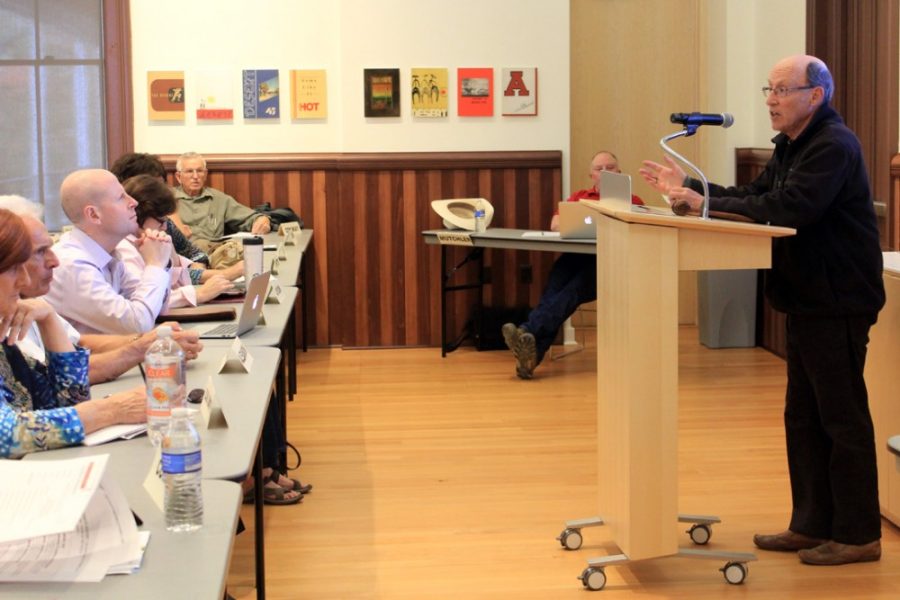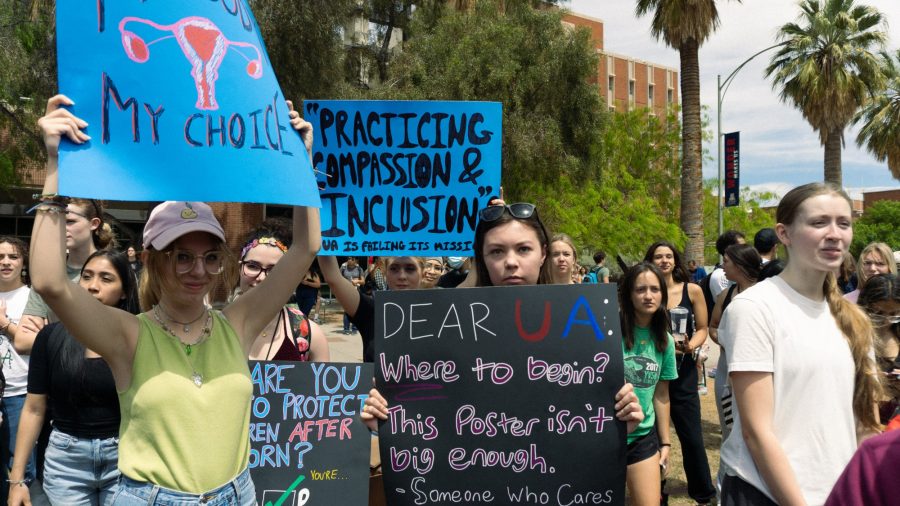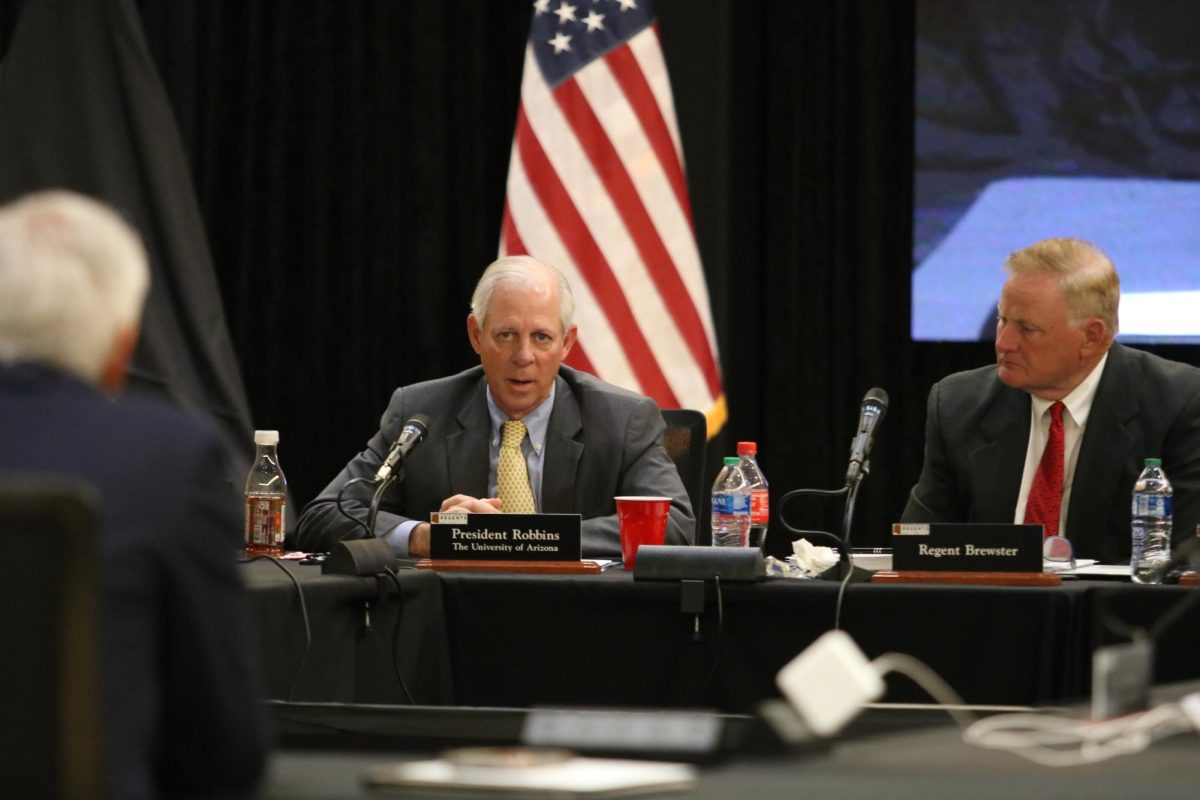The Faculty Senate focused on the UA’s 100 percent Student Engagement initiative at the monthly Faculty Senate meeting Monday afternoon.
Vincent Del Casino, vice provost for Digital Learning and Student Engagement, spoke to the senators on the issue of student engagement. He began by saying this initiative emerged as a result of questioning what it is that administration wants students to leave the UA with, leading to a task force to focus on this initiative.
“With that sort of initiative in mind, we launched into a conversation about what 100 percent engagement really might be — how we define it, how do we think about it, what are the categories that make sense,” Del Casino said.
He told the senate the task force then started to look at what it is students do while enrolled at the UA that is not formally recognized on a student’s transcript, such as sustainability and leadership.
He also gave an example of a field archeology class where students have the chance to go out and actually take part in archeological digs and an agricultural class where the student goes out and works with a member of the agricultural sector. Del Casino said what these already existing engagement opportunities lack is student reflection on how what students did will affect them and their future.
“The big, big picture to me is this kind of cultural politics of the campus that says we are genuinely interested in making sure that these kinds of student experiences are not only reflected on a transcript, but are a part of how they think of themselves, how they package themselves,” Del Casino said.
Del Casino said part of the issue is that there is learning going on which isn’t considered for credits. He gave the example of Compost Cats, which is through the Office of Sustainability, and said students participate in the group because they love it and there is no way to really represent what the students are doing and learning.
“What we propose is a secondary set of options as actually a zero-credit learning experience,” Del Casino said. “The idea here is that when you do these types of things, you can actually say they actually matter to who you are.”
A concern discussed at length after a senator asked about it was the issue that by prompting students to do these zero-credit learning experience, there is the possibility it may have a negative impact on the community.
The senator who brought up this concern said companies and individuals within the community do not appreciate it when students come in and prevent them from doing their jobs.
“We’ve been having a lot of conversations with community partners about how to do this … so [we‘ll] do exactly that,” Del Casino said.
He added that it’s also a question of how much activity is going on in the wider campus community, rather than simply having students going out into the community.
Another concern, which was brought up by Sen. Lynn Nadel, was the use of the word engagement, particularly after an anecdote of Del Casino’s in which he discussed talking about the initiative to a group of parents in the spring.
“I guess those parents would not have been as excited if what you were talking about was engaged classrooms,” Nadel said. “My guess is their excitement was about things that would be happening outside the regular classrooms.”
Del Casino responded to this concern by saying the initiative stems from the question of what a bachelor’s degree is really worth.
Sen. Edward Martin expressed worry over having these learning experiences shown on a student’s transcript.
“I’m a little concerned,” Martin said. “Would a department’s curriculum committee be the ones to say this is an approved activity?”
Del Casino said it would be a matter of approving curriculums for classes which go out and do things and approving their competency.
“We wanted to be able to capture as much of the activity that is already going on,” Del Casino said. “Part of the big picture is really getting students to turn back inward on themselves and reflect on the things they are doing. That is the big picture moment here.”
_______________
Follow Ariella Noth on Twitter.









